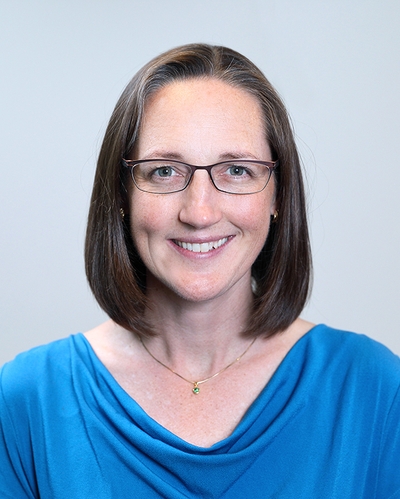
Research Topics
In recent decades, new treatments and early detection have dramatically improved survival following a cancer diagnosis. However, new malignancies, or “second cancers,” are a leading cause of morbidity and mortality among survivors. The overarching goal of Dr. Lindsay Morton’s research program is to quantify the risk of second cancers in different groups of cancer survivors, and to elucidate the causes of second cancers. The results from her studies can be used to better understand the biology of cancer and to inform clinical practice (e.g., treatment risks and benefits and long-term follow-up of cancer survivors).
Genetic Susceptibility to Second Cancers
With rapid advances in technology in the last decade, scientists have dramatically increased their understanding of cancer predisposition, finding inherited genetic markers that are associated with risk for a particular disease. Dr. Morton is leading DCEG efforts to identify genetic variants associated with the development of second cancers, either independent of treatment exposures or that act jointly with specific treatments. Key studies in this collaboration are the Childhood Cancer Survivor Study and NCI’s Long-Term Follow-Up Study of Retinoblastoma Survivors, both of which have the rare combination of detailed medical record data, long-term follow-up of childhood cancer survivors with information on occurrence of second cancers, and available DNA.
Treatment-Related Second Cancers
Primary cancer treatments are an important focus of second cancers research. Dr. Morton has an interest in the role of both radiotherapy and chemotherapy in second primary gastrointestinal malignancies, having recently completed a multi-center international study of second primary gastrointestinal (GI) cancers occurring among survivors of Hodgkin lymphoma and cancers of the breast, cervix, and testis. Dr. Morton also expanded on her long-standing interest in hematopoietic malignancies by investigating treatment-related myelodysplasia and leukemia following radiotherapy and chemotherapy. This research focuses on quantifying the risk of myelodysplasia and leukemia in patients treated in the modern era, in which known cytotoxic chemotherapies have been increasingly used. Finally, Dr. Morton is leading several studies aimed at identifying second cancer risks in high-risk populations, such as recipients of solid organ and hematopoietic stem cell transplants.
Biography
Dr. Morton received a B.A. from Dartmouth College and a Ph.D. in epidemiology from Yale University with a focus on cancer epidemiology. She joined DCEG in 2004 as a postdoctoral fellow with a concentration in molecular epidemiology. During her doctoral and postdoctoral training, she focused her research on understanding the causes of lymphoid neoplasms.
In 2008, Dr. Morton joined the Radiation Epidemiology Branch (REB) as a tenure-track investigator. She expanded her research to the study of multiple primary cancers, evaluating the carcinogenic effects of radiotherapy and chemotherapy, as well as other environmental and genetic risk factors for second cancers. In 2015, Dr. Morton was awarded scientific tenure by NIH and became a senior investigator. She was promoted to Deputy Chief, REB in 2020, became Head, Cancer Survivorship Research Unit within REB in 2021, and became Acting Chief of REB in September 2022. She is an elected member of the American Epidemiological Society.
Dr. Morton has been recognized for her research contributions with an NCI Career Development Innovation Award, an NIH Merit Award, and an NCI Director’s Award. She received the DCEG Mentoring Award for her strong commitment to training junior scientists.
Selected Publications
- Morton LM, Dores GM, Curtis RE, Lynch CF, Stovall M, Hall P, Gilbert ES, Hodgson DC, Storm HH, Johannesen TB, Smith SA, Weathers RE, Andersson M, Fossa SD, Hauptmann M, Holowaty EJ, Joensuu H, Kaijser M, Kleinerman RA, Langmark F, Pukkala E, Vaalavirta L, van den Belt-Dusebout AW, Fraumeni JF Jr, Travis LB, Aleman BM, van Leeuwen FE. Stomach cancer risk after treatment for hodgkin lymphoma. J Clin Oncol. 2013;31(27):3369-77.
- Lamart S, Stovall M, Simon SL, Smith SA, Weathers RE, Howell RM, Curtis RE, Aleman BM, Travis L, Kwon D, Morton LM. Radiation dose to the esophagus from breast cancer radiation therapy, 1943-1996: an international population-based study of 414 patients. Int J Radiat Oncol Biol Phys. 2013;86(4):694-701.
- Morton LM, Dores GM, Tucker MA, Kim CJ, Onel K, Gilbert ES, Fraumeni JF Jr, Curtis RE. Evolving risk of therapy-related acute myeloid leukemia following cancer chemotherapy among adults in the United States, 1975-2008. Blood. 2013;121(15):2996-3004.
- Wong JR, Morton LM, Tucker MA, Abramson DH, Seddon JM, Sampson JN, Kleinerman RA. Risk of subsequent malignant neoplasms in long-term hereditary retinoblastoma survivors after chemotherapy and radiotherapy. J Clin Oncol. 2014;32(29):3284-90.
- Morton LM, Slager SL, Cerhan JR, Wang SS, Vajdic CM, Skibola CF, Bracci PM, de Sanjosé S, Smedby KE, Chiu BC, Zhang Y, Mbulaiteye SM, Monnereau A, Turner JJ, Clavel J, Adami HO, Chang ET, Glimelius B, Hjalgrim H, Melbye M, Crosignani P, di Lollo S, Miligi L, Nanni O, Ramazzotti V, Rodella S, Costantini AS, Stagnaro E, Tumino R, Vindigni C, Vineis P, Becker N, Benavente Y, Boffetta P, Brennan P, Cocco P, Foretova L, Maynadié M, Nieters A, Staines A, Colt JS, Cozen W, Davis S, de Roos AJ, Hartge P, Rothman N, Severson RK, Holly EA, Call TG, Feldman AL, Habermann TM, Liebow M, Blair A, Cantor KP, Kane EV, Lightfoot T, Roman E, Smith A, Brooks-Wilson A, Connors JM, Gascoyne RD, Spinelli JJ, Armstrong BK, Kricker A, Holford TR, Lan Q, Zheng T, Orsi L, Dal Maso L, Franceschi S, La Vecchia C, Negri E, Serraino D, Bernstein L, Levine A, Friedberg JW, Kelly JL, Berndt SI, Birmann BM, Clarke CA, Flowers CR, Foran JM, Kadin ME, Paltiel O, Weisenburger DD, Linet MS, Sampson JN. Etiologic heterogeneity among non-Hodgkin lymphoma subtypes: the InterLymph Non-Hodgkin Lymphoma Subtypes Project. J Natl Cancer Inst Monogr. 2014;2014(48):130-44.
Related Scientific Focus Areas
This page was last updated on Thursday, April 4, 2024

